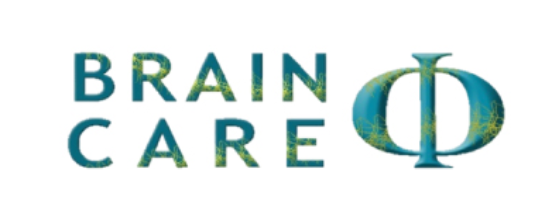
Traumatic Brain Injury
Traumatic Brain Injury - TBI
Traumatic Brain Injury usually results from a life event occurrence which may include a work related injury or a vehicular accident. A traumatic head injury typically indicates a blow to the head with a brief period of loss of consciousness and/or posttraumatic amnesia or disorientation. A loss of consciousness is thought to result from trauma to the brain stem or from diffuse cerebral injury.
There are a number of definitions for traumatic brain injury (TBI) and they often present with a range of severity. Most of them include some interval of consciousness and/or, some period of post traumatic amnesia. A commonly used definition in mild traumatic brain injury (MTBI) includes unconsciousness for less than twenty minutes and posttraumatic amnesia for less than forty-eight hours. Many of the brain injuries are concussions without a fracture of the skull and form part of the Post Concussion Syndrome (PCS). The length of loss of consciousness (LOC) or posttraumatic amnesia may be correlated with the probability of developing PCS.
Postconcussive syndrome, a sequela of traumatic head injury, is a much-debated topic, with controversy regarding symptom duration, the absence of objective neurologic findings, inconsistencies in presentation, poorly understood etiology and methodologic problems. Depending on the definition and the population examined, 29-90% of patients experience postconcussive symptoms shortly after a traumatic injury.
Most of the literature defines the syndrome as the continuation of at least three of the following symptoms: headache, dizziness, fatigue, irritability, impaired memory and concentration, insomnia and lowered tolerance for noise and light. It can be defined as either symptoms of at least three months duration, as symptoms appearing within the first week or as symptom occurrence and persistence within several weeks after the initial injury. PCS can also be divided into early, late or persistent PCS, with symptoms occurring for more than six months in duration.
In general, the findings at physical examination may either be normal or the client may exhibit subtle neurologic findings. Other findings may include the following:
Headache - Tension type, migraine, occipital neuralgia, cluster, supraorbital or infraorbital neuralgia, cephalgia
Cranial nerve symptoms and signs - Dizziness, vertigo, nausea, tinnitus, blurry vision, hearing loss, diplopia, diminished sense of taste and smell, light and noise sensitivity.
Neurasthenia or hyperesthesia (but not in a dermatomal distribution)
Psychological and neurovegetative problems - Anxiety, irritability, depression, sleep disturbance, change in appetite, decreased libido, fatigue, personality change.
Cognitive impairment or deficits which neuropsychological testing has revealed can persist for six months or longer. They include memory impairment, diminished concentration and attention, delayed information processing and reaction time, difficulties with vocabulary, short-term and intermediate-term memory, attention, cognitive flexibility, object recall, drawing and mathematics.
A depressed affect.
Management of Traumatic Brain Injury (TBI)
Biofeedback Therapy
Biofeedback (BFB) is a personalised therapy which gives moment-to-moment feedback about the body’s physiological parameters such as heart rate, skin conductance, respiration, temperature, muscle tension, and brain waves (EEG). With real-time audio-visual feedback information, the individual is able to modulate their performance in order to achieve a desired outcome by means of watching movies or playing games. When the target outcome is produced, the client will receive positive feedback from a display monitor to encourage this action to occur again.
Through EEG biofeedback participants learn to regulate specific frequencies of cortical activity. Studies have shown this therapy is effective for many different psychological and medical disorders, particularly in ones in which the cognitive functioning is central, such as deficits observed as a consequence of depression (Aniftos, 2016), brain tumour treatment (de Ruiter et al, 2012) and traumatic brain injury (Zorcec, 2011).
Executive control, working memory and attention have all been shown to improve in response to biofeedback therapy (Jeddi, 2013). Biofeedback is an evidence-based, non-invasive intervention that assists individuals in improving all domains of functioning. You can learn more by reading about the journeys of Barry William or David Ackerman at Brain Care.
If you or your loved one is experiencing addiction and are ready to get support, contact our psychology clinic in Tweed Heads, where counselling is available for children, teens, adults, couples and families. Often the first step is the hardest, but Brain Care is here to support you through the rest of your journey.
WHO WE HELP
Anger Management
Eating Disorders
Peak Performance
Traumatic Brain Injury
Contact Us

